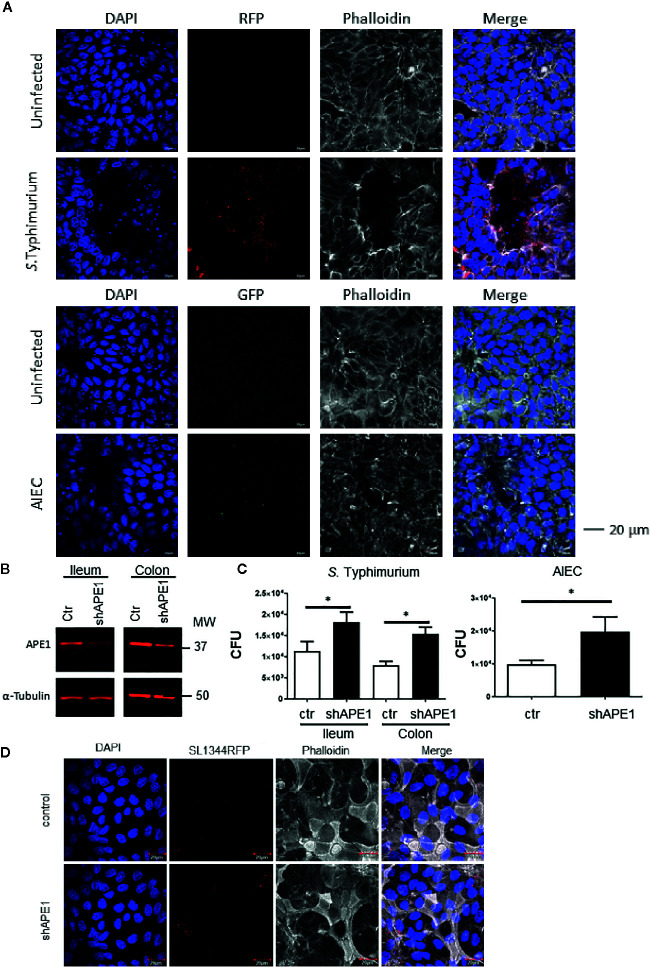Figure 2.
APE1 negatively regulates levels of intracellular bacteria in primary human epithelial cells. (A) To determine the ability of the bacteria to become internalized into human primary intestinal epithelial cells (colon), stem cells were differentiated on transwell inserts and infected for 1 h with RFP-expressing S. Typhimurium, (MOI 10) or GFP-expressing AIEC (MOI 100) and imaged by confocal microscopy. Arrows indicate clusters of S. Typhimurium, or individual AIEC. (B) APE1 protein levels are reduced in primary human ileal and colonic cells following transduction using lentiviruses expressing short hairpins against APE1. (C) Both APE1-deficient ileal and colonic primary epithelial cells show increased numbers of intracellular S. Typhimurium following infection for 1 h at MOI 10. AIEC were used to primary human ileal epithelial cells only at an MOI of 100. Numbers of intracellular bacteria were significantly increased in cells deficient in APE1. Data are shown from 5 independent experiments. (D) Confocal microscopic analysis confirms that APE1-deficient primary cells contain higher numbers of intracellular S. Typhimurium following infection at MOI 10. All error bars are represented as SEM. *p < 0.05

